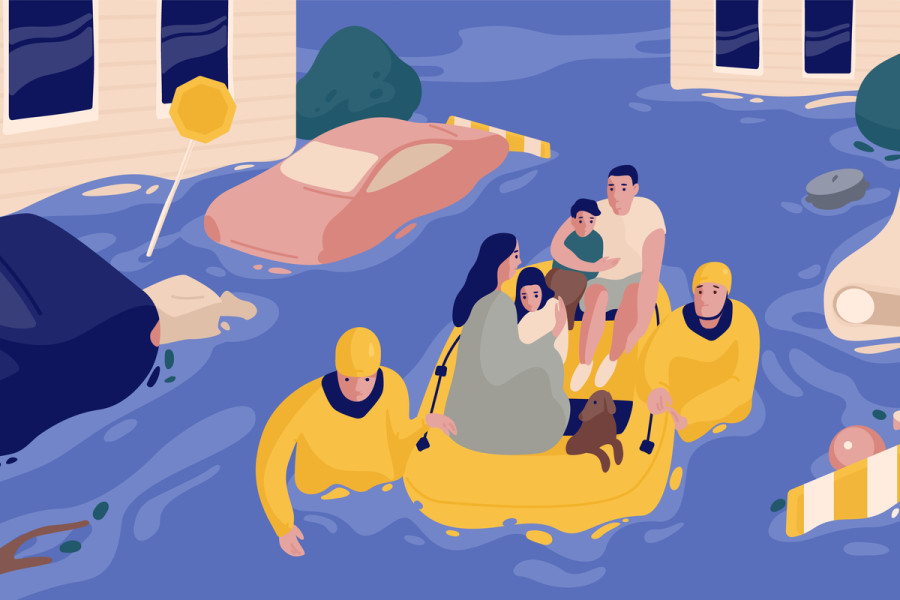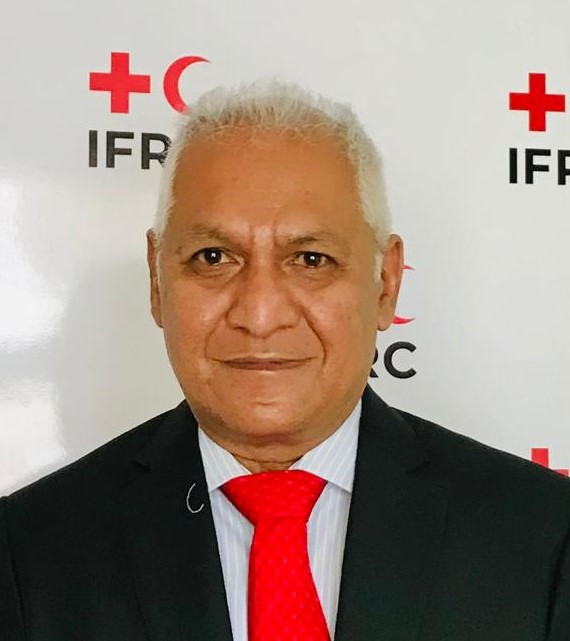Columns
Preparedness saves lives in disasters
Local solutions should be encouraged in all development plans and budgets of municipalities.
Azmat Ulla
With the end of the monsoon season in Nepal, tens of thousands of people are coping with the long-lasting impact of floods and landslides. Families grieving, houses and infrastructures destroyed, and local businesses submerged. Our thoughts are with everyone and particularly, older people and others most vulnerable. Behind the numbers of survivors are people and their loved ones with suspended livelihoods, hopes and dreams.
In late August, some areas were swamped with more than half of their usual annual rainfall in three days. Widespread floods submerged villages and crops in the plains. Landslides crashed down hillsides. The floods may be receding, but it will take months or even years to recover fully for many people. Families who have lost access to safe drinking water and sanitation facilities will be at a greater risk of diseases, including diarrhoea, malaria, dengue, and Covid-19. For those who lost their home or their harvest, there will be tough times ahead.
Many families will still be recovering when the next monsoon strikes again. More investment is needed to support communities to have stronger homes and be more resilient in the face of these severe disasters. We need to reduce risks for people living in areas prone to floods and landslides and have evacuation drills fine-tuned. We know from experience such investment reduces loss of valuable possessions and minimises human suffering.
In times of hardship, volunteer teams provide critical relief items such as safe drinking water, shelter during evacuations, and other essential items to survive, including mattresses, blankets, tarpaulins, mosquito nets, and hygiene kits. Volunteers are reinforcing the importance of staying safe and preventing sexual and gender-based violence, working with social and security forces to protect children and others most vulnerable.
Every day these incredible volunteers are helping the people of Nepal, vaccinating to prevent further surges of Covid-19 and helping families recover from tragic landslides and floods. The Nepal Red Cross has 121,000 active volunteers across the country. Each volunteer deserves accolades for their service to our communities.
The International Federation of Red Cross and Red Crescent Societies (IFRC) has just released emergency disaster relief funds of 321,000 Swiss Francs (Rs40 million) to support Nepal Red Cross as it provides relief such as tarpaulins, food and water for people after the recent floods and landslides.
Yet, these events are a reminder that responding to disasters and providing aid is not enough. In Nepal and globally, we are witnessing an increase in extreme events with devastating impacts. The recent floods, wildfires, heatwaves and droughts, are having a severe impact on millions of people and putting lives at risk across the globe.
As the climate crisis accelerates, more needs to be done in terms of raising awareness about the impact of climate change; 1.7 billion people have so far been affected by climate and weather-related disasters in the past decade, according to the latest IFRC Report. The IFRC is urging governments and all stakeholders to invest more in reducing risks faced due to disasters and helping communities be better prepared to save more lives.
The IFRC secretary-general, Mr Jagan Chapagain, says: “It cannot be more evident that climate change is here - and its humanitarian impacts are devastating. As humanitarians, it is our role to respond to disasters, address risks and better prepare our communities, especially the most vulnerable. We cannot do it alone. With UN climate talks, or Cop26, approaching, we urge governments to make comprehensive and lasting political commitments to boost preparedness, build resilient communities and save lives.”
There are great opportunities to ensure safety and wellbeing for all in Nepal. The country has learnt from past experiences - including the 2015 earthquake - and has been building over the years a comprehensive disaster risk reduction and management system at all levels. There is global evidence that such a “risk-informed” approach is critical to meet Sustainable Development Goals.
In Nepal and around the world, the IFRC is using scientific forecasts to allocate more emergency funding to support people ahead of predicted disasters. This helps communities take the necessary measures such as strengthening their houses and evacuating people before a disaster hits. It saves lives, both people and livestock.
People are defining local solutions to address risks, such as protecting their safe water supplies, preserving forests to prevent landslides, building evacuation centres and adapting agricultural practices to these more severe disasters. Red Cross, like many organisations, is bringing practical knowledge and tools to community leaders and groups.
We need to continue with our efforts that encourage local solutions that reduce risks in all development plans and budgets of municipalities. This “local disaster governance” is a key priority for IFRC globally, particularly in federal countries like Nepal, as we know that change happens within communities where investments are most needed. It is how we have worked since our inception more than 100 years ago: “as local as possible and as global as necessary”, a historic commitment we championed at the World Humanitarian Summit in 2016 and every day since.
With Covid-19, we have adapted and changed the way we work and engage with communities. But it does not change our focus on helping people who are most vulnerable, regardless of nationality, race, religious beliefs, class, or political opinions. We know that crises do not affect all of us in the same way. Everyone deserves to have a roof over their head or access to a life-saving vaccine.
As we face more dangers from a rapidly changing climate, we must continue to reduce risks, be prepared for all emergencies and be there to help communities bounce back and be stronger ahead of the next disaster.




 19.12°C Kathmandu
19.12°C Kathmandu















